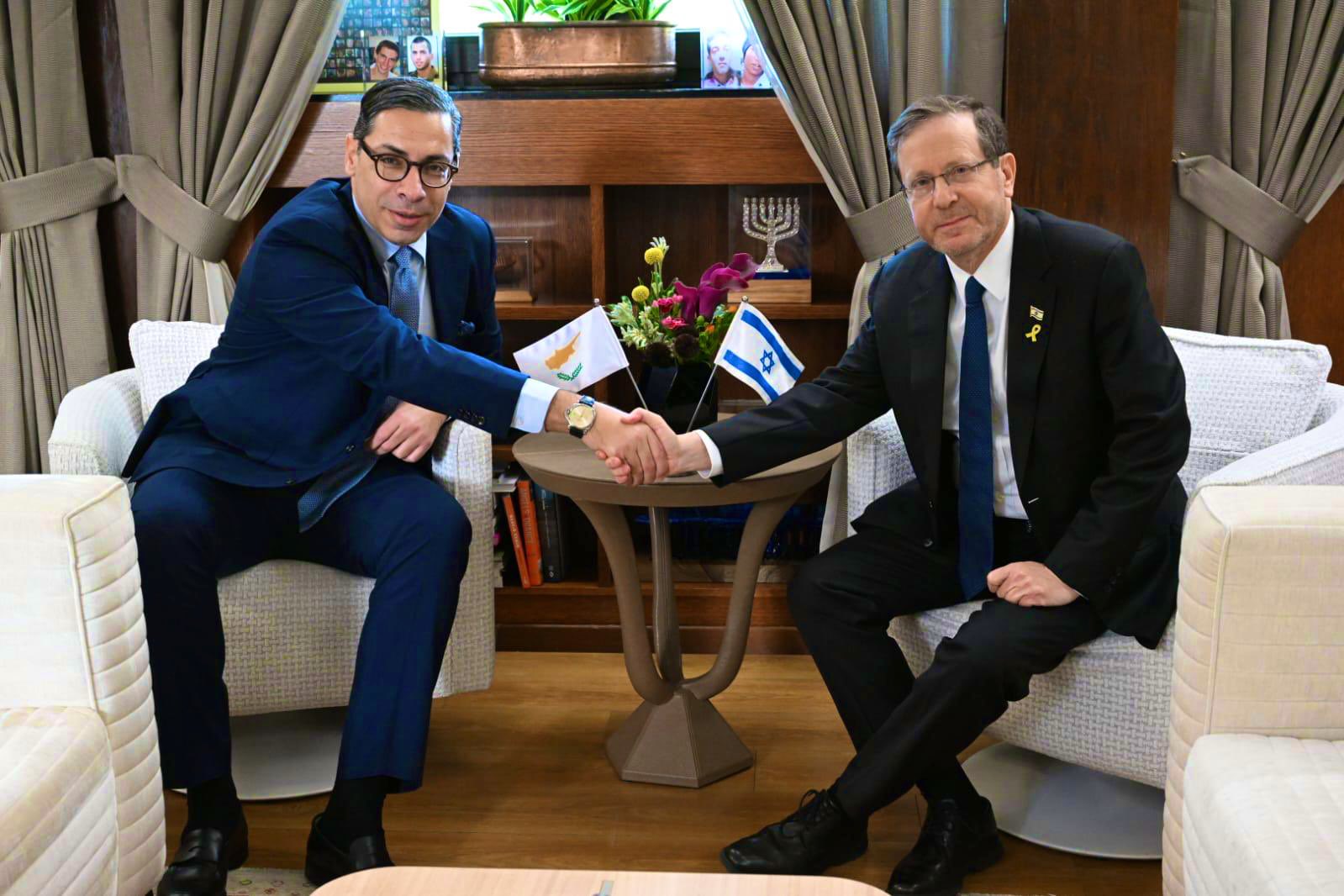Foreign Minister Constantinos Kombos on Monday completed a two-day visit to Israel and the West Bank, where he held meetings with various officials.
During the visit Kombos discussed “the current situation in the Middle East, as well as matters of bilateral interest.”
According to an official statement, on Sunday Cyprus’ chief diplomat had face-to-face meetings with his Israeli counterpart Gideon Sa’ar and later with Israeli president Isaac Herzog.
He also met with Ron Dermer, the Israeli minister of Strategic Affairs.
Dermer is also an observer-member of the Israeli war cabinet.
According to news reports in the United States and Israel, back in April Dermer had become “very animated” during a virtual meeting between Israeli and US officials.
The video call was held to discuss Israel’s plans for a ground invasion of Rafah in Gaza.
According to NBC News at the time, Dermer “began yelling and waving his arms around as he defended the plan” after US officials pushed back on aspects of the blueprint.
During his stay in Israel, the Cypriot foreign minister visited Yad Vashem, Israel’s official memorial to the victims of the Holocaust, where he laid a wreath.
He also met with families of Israelis held captive in Gaza.
On Monday, Kombos crossed over into the West Bank where he met with Mohammad Mustafa, prime minister of the Palestinian Authority.
In a post on X, the minister said he had a “substantive discussion” with Mustafa on the situation in Gaza and the West Bank.
“I reiterated Cyprus’ support to the process of reforms of the Palestinian Authority including though the EU toolbox,” Kombos posted.
He added: “Reaffirmed our commitment to reviving the peace process for a two state solution and to the vision for lasting peace, security and stability in the Middle East.”
While in the West Bank, the minister inaugurated a community and health centre in the village of Ein Quinya.
The €230,000 project was fully funded by the Republic of Cyprus via the ‘Cyprus Aid’ programme.
Kombos later met with Patriarch Theophilos III of Jerusalem. They discussed “regional developments, with a special emphasis on the status of the Orthodox Christian communities”.






Click here to change your cookie preferences